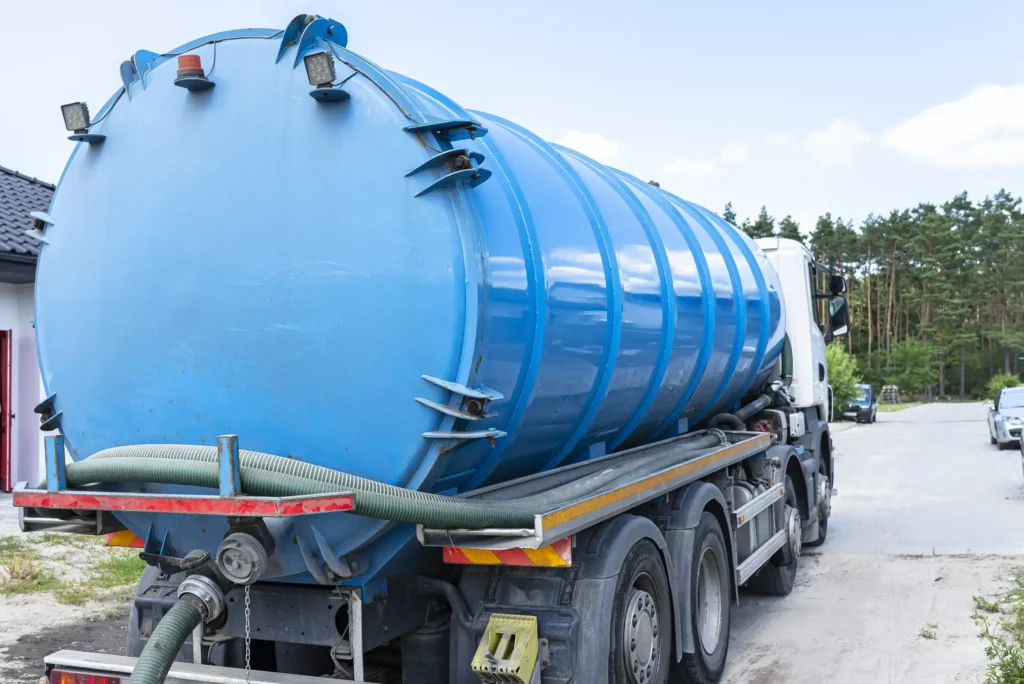Septic Tank Cleaning vs. Pumping: Key Differences Explained

BLOG POST Septic Tank Cleaning vs. Pumping: Key Differences Explained Septic tank cleaning is essential for maintaining a healthy and efficient septic system. Many homeowners confuse septic tank cleaning with septic tank pumping, but these two services serve different purposes. Understanding the difference can help you protect your investment and avoid costly repairs. What Is Septic Tank Cleaning? Septic tank cleaning refers to the process of removing sludge, scum, and solids from inside the tank, ensuring the system runs smoothly. Cleaning is a detailed job that involves not just pumping out the tank but also inspecting and clearing the baffles, filters, and pipes to prevent blockages. Regular septic tank cleaning prevents buildup that can lead to backups and damage to your drain field. It’s recommended every 3 to 5 years, depending on the tank size and household usage. Understanding Septic Tank Pumping Septic tank pumping is often used interchangeably with cleaning but focuses mainly on removing the liquid and solid buildup inside the tank. Pumping is usually the first step in cleaning, but it does not include the full inspection or clearing of pipes and filters. While pumping removes most of the waste, it might leave some residue that could clog the system later if not addressed during cleaning. Therefore, pumping alone is not always enough for a thorough septic maintenance plan. Why Septic Tank Cleaning Is Better Than Pumping Alone Choosing septic tank cleaning over simple pumping ensures a more thorough maintenance service. Cleaning includes: Complete sludge removal Inspection of tank components Clearing blockages in pipes and filters Checking the overall system for signs of damage Septic tank cleaning helps prolong the life of your system, reducing the need for expensive repairs or early replacement. Neglecting full cleaning can cause solids to overflow into the drain field, leading to soil contamination and costly system failures. How Often Should You Schedule Septic Tank Cleaning? The frequency of septic tank cleaning depends on factors such as: Tank size Number of household members Water usage habits Presence of garbage disposals or heavy solids Most experts recommend cleaning every 3 to 5 years, but homes with heavy usage may require more frequent services. Regular septic tank cleaning saves money in the long run by preventing system breakdowns and ensuring optimal performance. Signs You Need Septic Tank Cleaning or Pumping Some signs that indicate your septic system needs attention include: Slow-draining sinks or toilets Sewage odors around your property Standing water near the drain field Gurgling sounds in plumbing If you notice these symptoms, it is crucial to contact a septic professional for an inspection and possible septic tank cleaning or pumping. Final Thoughts on Septic Tank Cleaning vs. Pumping While septic tank pumping is a necessary part of maintenance, septic tank cleaning offers a more complete service to keep your system healthy. Don’t wait for problems to arise—schedule regular septic tank cleaning to avoid costly repairs and protect your home. Ready for Professional Septic Tank Cleaning? Protect your home by scheduling septic tank cleaning today. Contact us now for expert service that ensures your septic system functions efficiently for years to come. Explore our Overflow Septic LLC blog for more tips on maintaining your system. Share on Social Media
